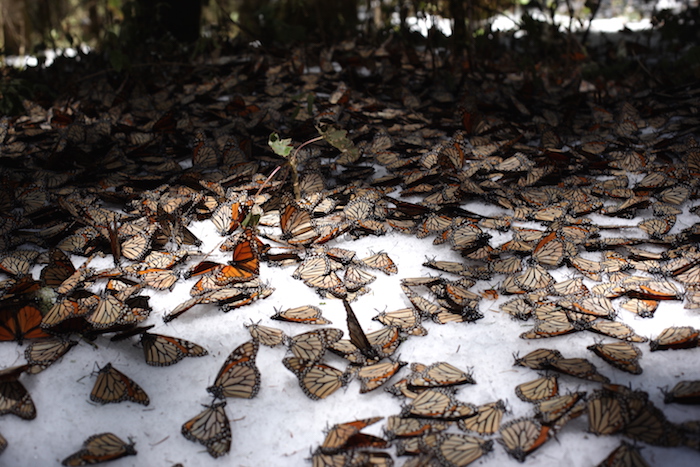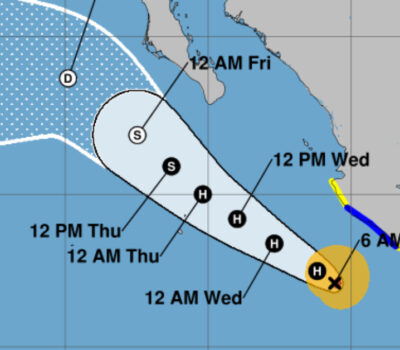Scientists from several countries urged Mexican authorities to immediately halt logging in the Monarch Butterfly Biosphere Reserve and promote the regeneration of the forests that form its habitat, in a published letter in the current edition of the journal Science .
In the letter, the scientists indicated that the monarch butterflies (Danaus plexippus) make one of the most spectacular migrations of the animal kingdom.
They highlighted that this migration is an iconic natural phenomenon with scientific, educational, cultural and socioeconomic value, and that the Oyamel forests in Michoacán, which are essential for harboring the butterflies during their hibernation, were declared World Heritage by UNESCO in 2008 to protect them.
They also stressed that hibernation forests are under threat from storms and human disturbances.
“In March 2016, an intense wind storm hit the Monarch Butterfly Biosphere Reserve. The tree canopy loss caused by the storm reduced thermal protection, and a subsequent episode of freezing weather reduced the butterfly population by 31 to 38 percent,” they said.
They said that the logging bans were suspended for a post-storm salvage operation from April to December 2016, both outside and within the reserve, including the theoretically protected core zone.
The operation officially aimed at removing trees tumbled by the wind was extended in 2017. Scientists said there is no official data on the volumes of wood removed, but that many thousands of trees were removed.
The letter states that current logging in Michoacán could accelerate the decline of the monarch’s populations through the illegal logging of other trees not affected under the guise of legalized salvage operations, as well as a general habitat degradation caused by the salvage cutting.
According to the scientists, “the Mexican government must also reinforce national forest planning in such a way that administrators are better prepared for unexpected situations.”
In addition to “promoting the natural regeneration of the oyamel forest in the core zone and supporting a carefully planned and properly managed reforestation in the containment zone”.
“These are key priorities for the continued existence of the migration of monarchs,” they concluded.
Among the signatories scientists is the Ecuadorian Pablo Jaramillo López, doctor in biology, assigned to the Institute of Ecosystems and Sustainability Research of the National Autonomous University of Mexico (UNAM).
Signed also by Alexandro Leverkus, of the Department of Life Sciences of the University of Alcalá (Spain); Lincoln Brower, from the Department of Biology of the Sweet Briar School (USA); David Lindenmayer, of the Fenner School of Environment and Society of the National University of Australia, and Ernest Williams, of the Department of Biology of the Hamilton Faculty (EEU).
Scientists from several countries urged Mexican authorities to immediately halt logging in the Monarch Butterfly Biosphere Reserve and promote the regeneration of the forests that . . .












